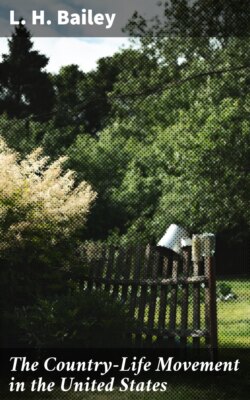Читать книгу The Country-Life Movement in the United States - L. H. Bailey - Страница 8
На сайте Литреса книга снята с продажи.
The commission on country life.
ОглавлениеTable of Contents
The first organized expression of the country-life movement in the United States was the appointment of the Commission on Country Life by President Roosevelt in August, 1908. It was a Commission of exploration and suggestion. It could make no scientific studies of its own within the time at its command, but it could put the situation before the people. President Roosevelt saw the country-life problem and attacked it.
The Commission made its Report to the President early in 1909. It found the general level of country life in the United States to be good as compared with that of any previous time, but yet "that agriculture is not commercially as profitable as it is entitled to be for the labor and energy that the farmer expends and the risks that he assumes, and that the social conditions in the open country are far short of their possibilities."
A dozen large reasons for this state of affairs, a state that directly curtails the efficiency of the nation, are given in the Report; and it suggests many remedies that can be set in motion by Congress, states, communities, and individuals. The three "great movements of the utmost consequence that should be set under way at the earliest possible time, because they are fundamental to the whole problem of ultimate permanent reconstruction" are: taking inventory of country life by means of "an exhaustive study or survey of all the conditions that surround the business of farming and the people who live in the country, in order to take stock of our resources and to supply the farmer with local knowledge"; the organizing of a nationalized extension work; the inauguration of a general campaign of rural progress.
It is suggested that Congress provide "some means or agency for the guidance of public opinion toward the development of a real rural society that shall rest directly on the land."
The Report of the Commission on Country Life makes no discussion of the city-to-country movement.
The Report recognizes the fundamental importance of the agricultural experiment stations and of the great chain of land-grant colleges and of government departments and of other agencies; and the work that it proposes is intended to be supplementary to them.
